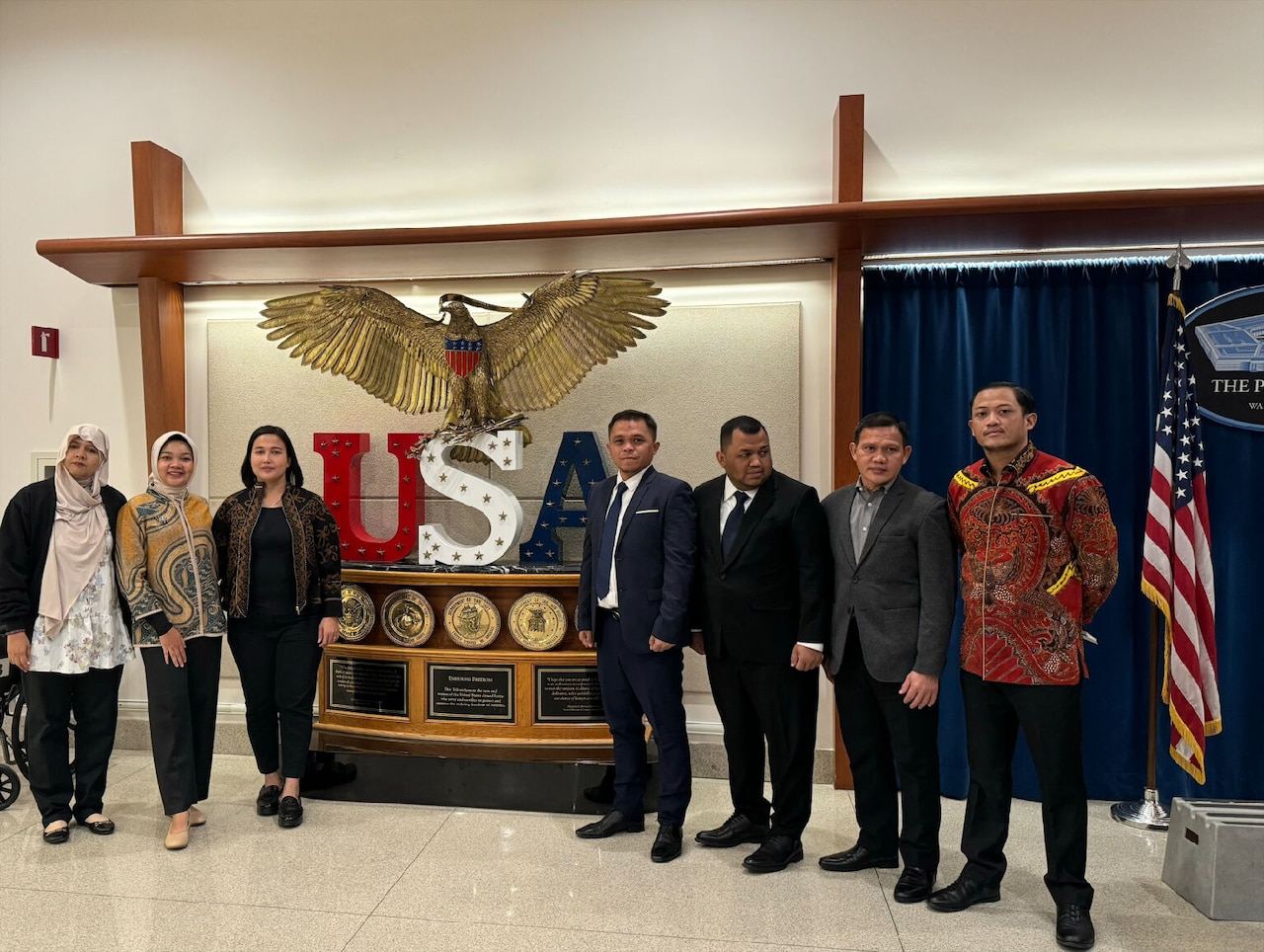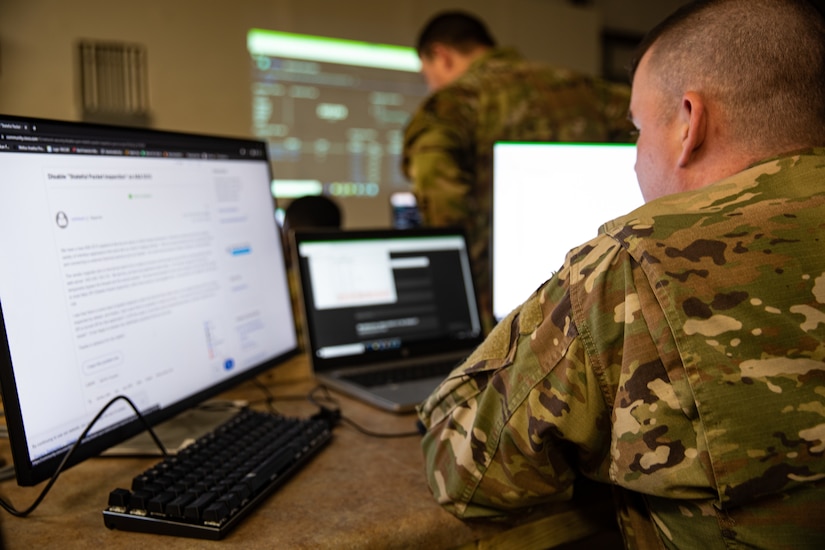A senior Defense Department official hosted government officials, academics and entrepreneurs from Indonesia for a discussion on how the Pentagon is aligning its cyber workforce strategy to meet the demands of a rapidly evolving domain.
Patrick Johnson, director of the DOD Chief Information Officer’s Workforce Innovation Directorate, provided an in-depth overview of the Pentagon’s cyber workforce framework and vision for recruiting and retaining top talent to meet the demands of the future.
The exchange was held as part of the State Department’s International Visitor Leadership Program, or IVLP, which aims to develop lasting relationships between emerging foreign leaders and their counterparts in the United States. Next week, representatives from DOD CIO will host a group from Japan who are in the U.S. to discuss ways to enhance cybersecurity in Japan.
“In the cyber arena, the human being is the weapon system,” Johnson said, underscoring the critical importance of securing the global networks that permeate daily life in both the public and private sectors.
He said the nation’s defenders must increasingly account for both the kinetic and nonkinetic effects that shape the modern battlefield. He noted, for example, that a nefarious cyber actor could single-handedly take down the world’s most advanced fighter aircraft without firing a single shot.
In 2023, DOD published its strategy to align the department’s efforts to identify, recruit, develop and retain a data-literate and technology-adept cyber workforce to ensure the U.S. maintains its warfighting edge.
The department has also laid out its framework to shape the cyber workforce through personnel qualification, academic outreach and professional development; and it has implemented the Cyber Excepted Service, which taps into enhanced recruitment and retention authorities.
But the challenges presented by the rapidly changing cyber domain are not unique to DOD, as this week’s discussion highlighted.
The exchange provided an opportunity for the participants to discuss shared challenges that span the public and private sectors in both the U.S. and Indonesia.
The participants discussed common bureaucratic hurdles in in both countries that challenge public sector recruiters, who often battle lengthy hiring processes and higher salaries offered by private employers.
They also discussed the changing metrics used to gauge candidate qualifications for cyber jobs.
Al Akbar Rahmadillah, founder of Sobat Cyber Indonesia, highlighted the imperative to tap into practical qualifications gained through informal, hands-on training.
That sentiment is not unique to Indonesia’s private sector. Johnson said DOD is increasingly looking to leverage performance-based qualifications, rather than formal education.
Participants also mentioned the impact of competition stemming from Indonesia’s large population of young professionals has on recruiting cyber talent.
That back-and-forth exchange is precisely the level of dialogue the IVLP is designed to foster.
Since 1940, the IVLP has hosted more than 225,000 participants for exchanges focused on topics ranging from young people and women’s leadership to promoting cybersecurity and combatting transnational crime.
Alfian Linux, chief executive officer of Xtend Indonesia, a private sector technology firm, said his experience participating has been invaluable.
“Everyone knows that the giant companies and the technology before has come from the United States.,” he said, adding that he hopes the IVLP discussions will open doors for Indonesian firms to work effectively alongside U.S. firms.
But Johnson, who has hosted an IVLP cohort from Iraq as part of the program, said the U.S. also benefits immensely from the exchange.
“In the cyber domain, the talent shortage is global,” he said, adding that every country has information technology infrastructure that must be defended.
Johnson said it is incumbent on countries to learn from one another to overcome pressing challenges.
“I think we need to take it seriously [and] take that opportunity to talk to smart people from outside our own little sphere,” he said. “The world has a lot to offer.”
(Except for the headline, this story has not been edited by PostX News and is published from a syndicated feed.)


